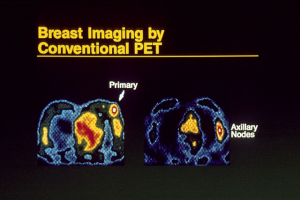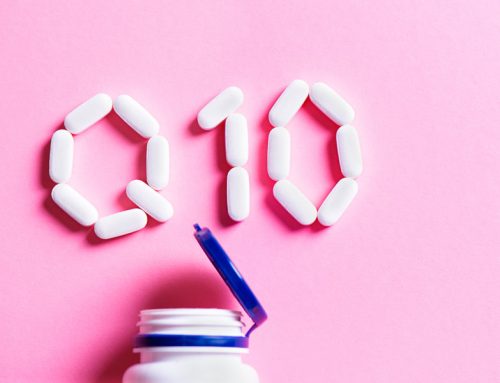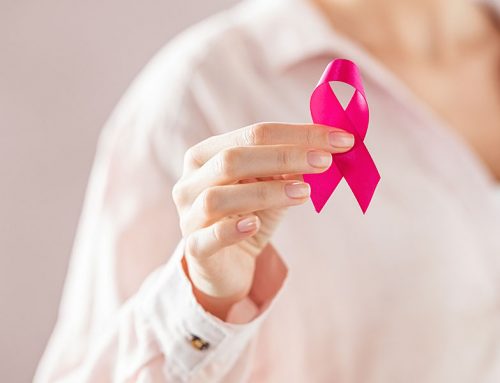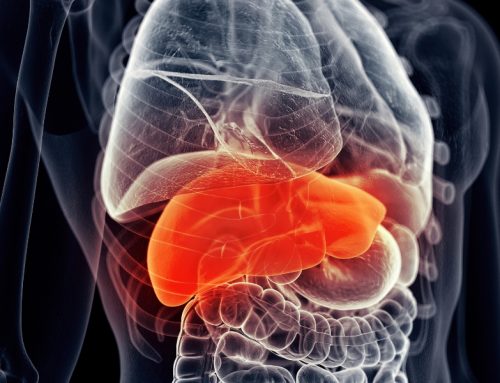
Individuals with breast cancer are much more likely to have low plasma Coenzyme Q10 concentrations than healthy individuals. Cell line studies, animal studies, and a few human studies suggest that Coenzyme Q10 supplementation may be beneficial as an adjunctive treatment together with conventional therapy for breast cancer.The published bio-medical journal literature about the efficacy of Coenzyme Q10 adjunct treatment in breast cancer care is sparse but promising.
The published bio-medical journal literature about the efficacy of Coenzyme Q10 adjunct treatment in breast cancer care is sparse but promising. So concludes the author of a 2017 systematic review of the journal articles indexed in PubMed. PubMed is the free public index to the National Library of Medicine’s Medline database [Tafazoli].
More well-designed clinical studies are needed to provide answers to questions about the adjuvant use of Coenzyme Q10 in breast cancer treatment and care:
- Is Coenzyme Q10 effective as a single intervention agent?
- Is Coenzyme Q10 more effective in combination with other nutritional supplements such as essential fatty acids and selenium?
- What formulations and what daily dosages of Coenzyme Q10 are most effective?
Documentation about Coenzyme Q10 and breast cancer care
Coenzyme Q10 concentrations and breast cancer
- Evidence from human breast tissue samples shows that Coenzyme Q10 concentrations are much lower in cancerous tissue than in normal tissue [Tafazoli].
- Data from a case-control study has shown an inverse relationship between plasma Coenzyme Q10 concentrations and the incidence of breast cancer, independent of menopausal status [Tafazoli].
- Cell line studies have shown that the addition of Coenzyme Q10 does not inhibit the apoptotic, anti-growth, and anti-colonization effects of the chemotherapy drug doxorubicin – trade name Adriamycin while it does protect the heart muscle [Tafazoli].
- Coenzyme Q10 supplementation added to chemotherapy with doxorubicin (Adriamycin) prevents the mitochondrial damage and subsequent cardio-toxicity caused by reactive oxygen species produced during the treatment with doxorubicin [Tafazoli].
Coenzyme Q10 and mammary carcinomas
An animal study has shown that oral administration of Coenzyme Q10 had the following effects on rats with induced mammary carcinomas [Tafazoli]:
- reduction of the extent of lipid peroxidation
- restoration of tissue antioxidants to near-normal levels
- increased expression of tumor suppressor genes
- improved anti-tumor and anti-proliferation activity
Coenzyme Q10 as adjuvant treatment of breast cancer patients
Adjuvant treatment of high-risk breast cancer patients with Coenzyme Q10, essential fatty acids, and other antioxidants resulted in the following desirable treatment outcomes in some of the patients [Lockwood]:
- tumor remissions (in six of the 32 patients)
- reduced opioid use for pain relief
- prevention of distant metastases
- no deaths after 24 months of adjuvant treatment
- better quality of life
- better than expected 5-year survival rates
Coenzyme Q10 and tamoxifen treatment of breast cancer patients
Adjuvant treatment of breast cancer patients taking tamoxifen (10 milligrams twice daily) with 100 milligrams of Coenzyme Q10, 10 milligrams of riboflavin, and 50 milligrams of niacin resulted in a significant suppression of tumor activity [Tafazoli]. Furthermore, the combination treatment added to the tamoxifen treatment had the following beneficial health effects [Tafazoli]:
- improved antioxidant defense against breast cancer-related oxidative stress
- reduced liver damage
- improved lipid profile
Coenzyme Q10 and L-carnitine treatment with conventional treatment of breast cancer
Patients treated with Coenzyme Q10 and L-carnitine in addition to conventional chemotherapy showed significant improvement in various measures of cancer-related fatigue compared to patients treated exclusively with the conventional chemotherapy [Tafazoli].
A second recent study suggests that a combination of Coenzyme Q10 and L-carnitine is effective in controlling moderate to severe cancer-related fatigue in breast cancer patient [Iwase].
Why Coenzyme Q10 for breast cancer care?
Breast cancer is the most common form of cancer in the world today. It has a high mortality rate. All of the available treatment modes – chemotherapy, radiation, and surgery – have known complications:
- partial effectiveness
- severe adverse effects
- high cost
Coenzyme Q10 supplements are affordable, well-tolerated, and safe for long-term use.
The results of the published clinical studies reviewed by Dr. Tafazoli suggest that Coenzyme Q10 as an adjunct to conventional treatment will be effective:
- in suppressing tumor development
- in improving antioxidant protection against cancer-related oxidative stress
- in reducing cancer-related fatigue
Sources
Bjørklund, G. (2015). The Adjuvant Nutritional Intervention in Cancer (ANICA) Trial. Nutrition and Cancer, 67(8), 1355-1358.
Hertz, N., and Lister, R. E. (2009). Improved survival in patients with end-stage cancer treated with coenzyme Q(10) and other antioxidants: a pilot study. The Journal of International Medical Research, 37, no. 6: 1961-1971.
Iwase, S., Kawaguchi, T., Yotsumoto, D., Doi, T., Miyara, K., Odagiri, H., & … Yamaguchi, T. (2016). Efficacy and safety of an amino acid jelly containing Coenzyme Q10 and L-carnitine in controlling fatigue in breast cancer patients receiving chemotherapy: a multi-institutional, randomized, exploratory trial (JORTC-CAM01). Supportive Care In Cancer, 24(2), 637-646. doi:10.1007/s00520-015-2824-4
Lockwood, K., Moesgaard, S., Hanioka, T., & Folkers, K. (1994). Apparent partial remission of breast cancer in “high risk” patients supplemented with nutritional antioxidants, essential fatty acids and coenzyme Q10. Molecular Aspects of Medicine, 15 Suppls231-s240.
Tafazoli, A. (2017). Coenzyme Q10 in breast cancer care. Future Oncology, 13.11: 1035-1041.
The information presented in this review article is not intended as medical advice and should not be construed as such.









As a breast cancer person taking letrizole how much co q 10 is benefucial
Hello Rose,
I am sorry to hear that you are needing to take letrozole.
I am limited in what I can say in answer to your questions as 1) I am not a medical doctor – you really must consult with your oncologist about this, and 2) the ANICA breast cancer study combined Coenzyme Q10 with an antioxidant cocktail.
Thus, there is no way to single out the beneficial effect of the Coenzyme Q10.
Here is a link to a description of the Adjuvant Nutritional Intervention in Cancer (ANICA) Trial.
https://www.tandfonline.com/doi/abs/10.1080/01635581.2015.1085582?journalCode=hnuc20
Best of luck,
Richard